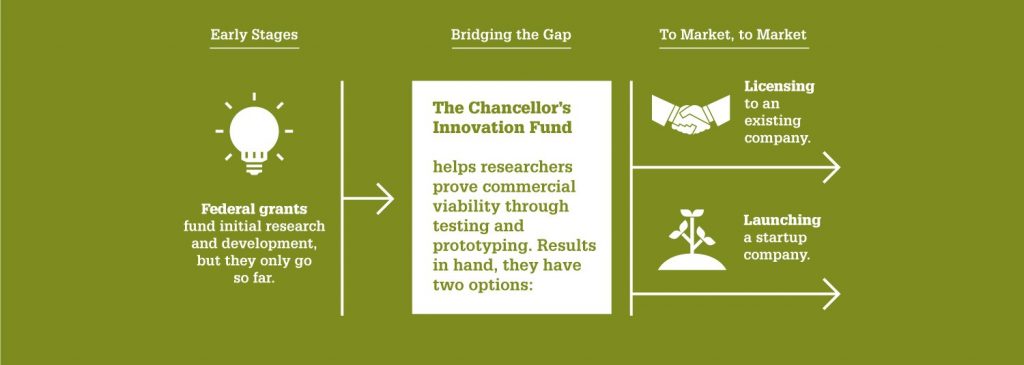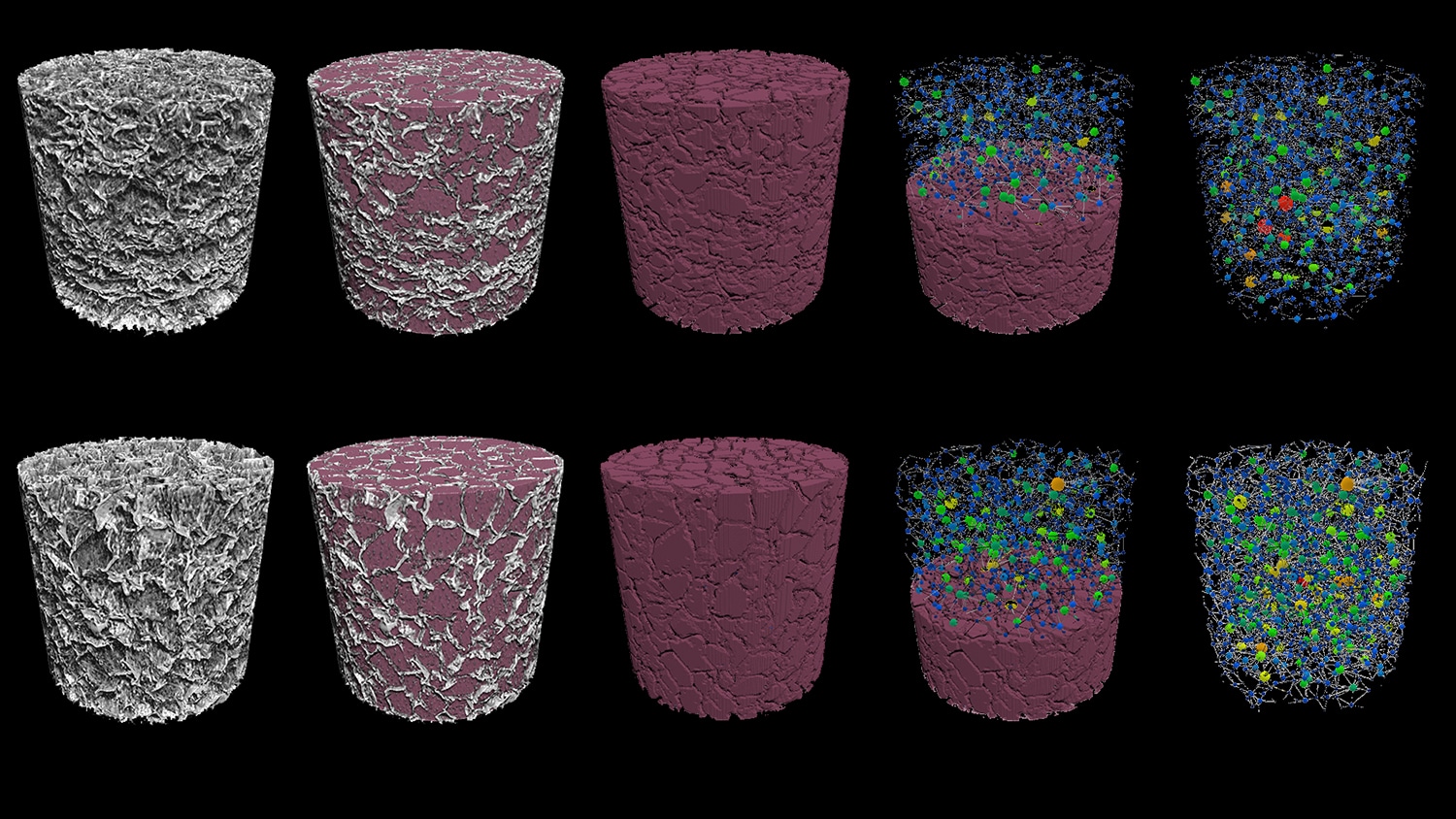From Ideas to Solutions:
Six projects secured support from the Chancellor’s Innovation Fund (CIF) at NC State this year, and for the first time in the CIF’s history, awardees will receive supplemental resources through local entrepreneur and investor Bill Spruill’s 2ndF Research Commercialization Fund.
This article was adapted from a piece written by Matt Simpson for NC State News on August 24th, 2023. The original article can be found here.
The Chancellor’s Innovation Fund awards research projects that meet criteria for eventual commercialization. The hope is that these projects will directly impact the community by being brought to market.
Big ideas are born at NC State on a regular basis. Bill Spruill knows that — which is why he decided to donate close to a million dollars to the university in support of the Chancellor’s Innovation Fund (CIF).
Starting this year, Spruill’s 2ndF Research Commercialization Fund will provide additional support to annual awardees of the CIF.
“When I looked at where might the next SAS, where might the next Cree (now Wolfspeed), where might the next Quintiles (now IQVIA) come from, I think focusing on NC State technology is a no-brainer,” Spruill told the News & Observer. “NC State is the place where we generate the most promising technology in the state.
The 2ndF Research Commercialization Fund has committed to providing $900,000 in financial support over the next three years.
“The transformation of university research into commercially viable businesses is the best way for North Carolina to be a globally competitive juggernaut in workforce development, wealth creation, and economic development,” says Spruill, a tech inventor turned investor and philanthropist from Goldsboro, North Carolina.
“We are grateful for the generous support from Bill and the 2ndF team, and we’re excited to use his gift to expand the Chancellor’s Innovation Fund program,” says Amy Parker, assistant director of research commercialization programs in NC State University’s Office of Research Commercialization. “In addition to the funding provided, the industry knowledge and connections that 2ndF can share with CIF-funded researchers who may be exploring commercialization for the first time will be a critical asset as we work to successfully transition NC State innovations to market.”
The CIF, established in 2010, awards support to short-term, commercially focused research projects. Each year, a select few promising proposals are chosen based on their likelihood of market success and their potential societal benefits.

The CIF seeks to help this research bridge the gap between public and private funding. For every dollar the CIF awards, it generates close to $20 in additional funding or investment.
To date, the CIF has granted nearly $4.5 million to 75 projects, attracting over $78 million in follow-on funding. These projects have led to 34 startup companies, 63 commercialization agreements and $2.5 million in licensing revenue.
This year’s CIF awardees are working on a wearable EKG for dogs, better ways to capture carbon dioxide and synthesize or modify DNA, new tools to detect plant disease and bridge failure sooner, and a game-changing technique that could help drastically cut the costs of cutting-edge cancer treatment.
The Joint Department of Biomedical Engineering is pleased to announce that Yevgeny Brudno and Pritha Agarwalla have been awarded this prestigious fund.
Implantable CAR T-Cell Scaffolds
Chimeric antigen receptor targeted (CAR T) cell therapy is a revolutionary cancer treatment that’s already in use against lymphomas. However, still in its early days, the therapy’s price remains too high for the average patient to afford. Part of the problem is the CAR T-cell manufacturing process is time-intensive and complex.
Currently, CAR T cells are custom-manufactured in a lab and then infused into the bloodstream. Yevgeny Brudno and Pritha Agarwalla, faculty in the Joint Department of Biomedical Engineering, aim to dramatically change things by making the body a CAR T-cell factory of its own. Their technology could eventually turn what now takes weeks into days. If everything goes according to plan, doctors will be able to one day deliver the treatment through an outpatient surgery in which they implant an algae-based “scaffold” — a piece of spongey biocompatible material roughly the size of a mini marshmallow — designed to reprogram the body’s natural T cells into CAR T cells, which then find and destroy cancer cells.
The CIF supported the precursor to this technology in 2021. And last year, Brudno, Agarwalla and researchers from UNC-Chapel Hill published a paper that found — in a proof-of-concept study involving lymphoma in mice — the implantable alternative was faster and more effective than conventional CAR T-cell cancer treatment. However, further pre-clinical trial data is required to ensure the scaffold’s safety and efficacy.
CIF support will help the team address FDA feedback in hopes of moving toward clinical trials. Specifically, the goal will be to demonstrate that the scaffold can be produced in a GMP-compliant facility.
For more information on the other CIF awardees, refer to the original announcement here.



